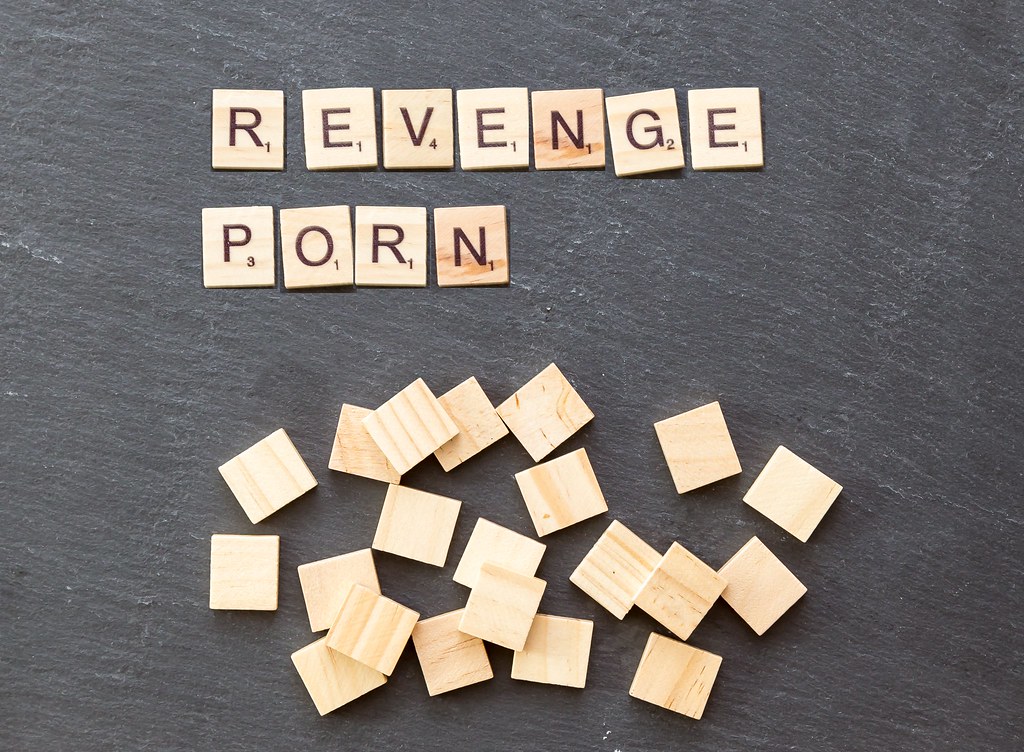CW: domestic abuse, sexual assault
Victims breathe a sigh of relief as the government commits to making the threat of revenge porn a crime. The Naked Threat Campaign’s tireless efforts were rewarded this month when England and Wales joined Scotland in criminalising the threat of revenge porn.
Revenge porn, the sharing of private sexual photos or videos of someone without their consent with the purpose of causing embarrassment or distress, was criminalised in England and Wales in 2015. Unlike the Scottish law, passed in 2016, it did not make threatening revenge porn a crime, leaving the 1 in 7 women who experience such threats in the UK with little opportunity for justice.
This form of abuse leaves victims, many of whom are underage, feeling powerless and ashamed. In her recent BBC documentary, ex-Love Island star Zara McDermott recalls when, at 14, images of her were shared without her consent. “I can’t even tell you the feeling, feeling like your parents are ashamed of you,” she said tearfully. “How will they look at me the same ever again? It was so embarrassing. I just wanted to die.” Zara’s story is sadly not uncommon, nor is the emotional trauma she faced. The shame surrounding revenge porn means many victims feel they have no one to turn to and often place the blame on themselves.
The new amendment to the Domestic Abuse Act, will make threatening revenge porn punishable with up to two years in jail. By giving victims a legal standing, this legislation will make it easier for them to report their abuse, no longer leaving them to suffer these threats in silence.
Hetti Barkworth-Nanton, Chair of Refuge, the charity behind The Naked Threat Campaign, said: “Threatening to share intimate images has become a powerful way in which men who abuse women control their choices and it is heart-warming to know that the government has listened to survivor voices.”
Refuge’s campaign had 45,000 supporters writing to the government urging them to make this change. Refuge thanked the dedicated survivors who shared their stories and worked tirelessly to support the campaign alongside other supporters, including Refuge ambassador Olivia Colman and survivor Zara McDermott.
Benefits of this change are yet to be seen as the bill is currently going through the House of Lords, where the amendments have been tabled.
Despite revenge porn having been illegal for at least 5 years, the problem is not subsiding. 2020 saw an 87% increase in people seeking support from Revenge Porn Helpline and in January 2021 the helpline had its highest number of monthly cases ever.
It is clear that illegality has not stopped abusers from using revenge porn as a means to humiliate victims. So why is this? For a case of revenge porn to be valid the victim must prove that the image or video was shared “to cause embarrassment or distress.” A difficult task, especially as an overwhelming majority of cases occur from an ex or current partner.
In cases where an intimate photo or video is shared non-consensually, victims get hurt. But without evidence of the abuser’s intent to cause “embarrassment or distress,” it cannot be treated as revenge porn.
If an image shared around a local circle is mortifying, then one uploaded onto one of the 1.3 million porn websites on the internet is soul-destroying. Sadly, this is a scenario familiar for many affected by revenge porn.
When Kate Isaac discovered her friend was a victim of this, and subsequently finding it was happening to women all over the country, she founded the #NotYourPorn campaign. Her friend had intimate videos uploaded to Pornhub without their consent. Despite reporting the video and being underage at the time, Pornhub took weeks to remove it. Pornhub’s download feature meant that she was trapped in a cycle of reporting, waiting and removing videos, only to see them cropping up again.
#NotYourPorn runs with the tagline ‘Leaked Sex Tape’ is not a genre,” and their mission is to regulate the global porn industry, fighting for the removal of the download feature and to allow only verified users to upload content. Although the campaign gained traction Pornhub remained silent on the issues raised.
Pornhub is the world’s 10th most popular website. These women must now live with the knowledge that their videos are online forever, and that Pornhub is profiting from their bodies. One woman even commented that she is reluctant to have children, knowing that they may one day see this video.
In December 2020,the New York Times ran an investigation that found videos featuring rape and child abuse on Pornhub. The investigation called for similar changes to those demanded by #NotYourPorn as well as increased moderation of the site.
In a statement to the Times, Pornhub stated it was already “unequivocally committed to combating child sexual abuse material, and has instituted a comprehensive, industry-leading trust and safety policy to identify and eradicate illegal material from our community” despite failing to provide evidence of any moderation of the site.
Pornhub may keep its cards close to its chest, but it is clear where its interests lie. Just under a week after the investigation was published, Visa and Mastercard suspended services to Pornhub, following suit from American Express. The loss of services from three top banks sparked a sudden interest in morality from Pornhub as they vowed to make changes.
Following the suggestions made by the New York Times, Pornhub now only permits downloads for specific content,, allows only verified users to post, and just last month announced plans to expand its moderating team.
While the new amendment to the Domestic Abuse Act is an important step forward, more needs to be done. Legislation will fail to be truly effective until porn sites actively take on responsibility and continue to be held to account. We need to take the power out of the hands of multi-billion dollar companies and return power to the victims.
Image: Marco Verch via Flickr

